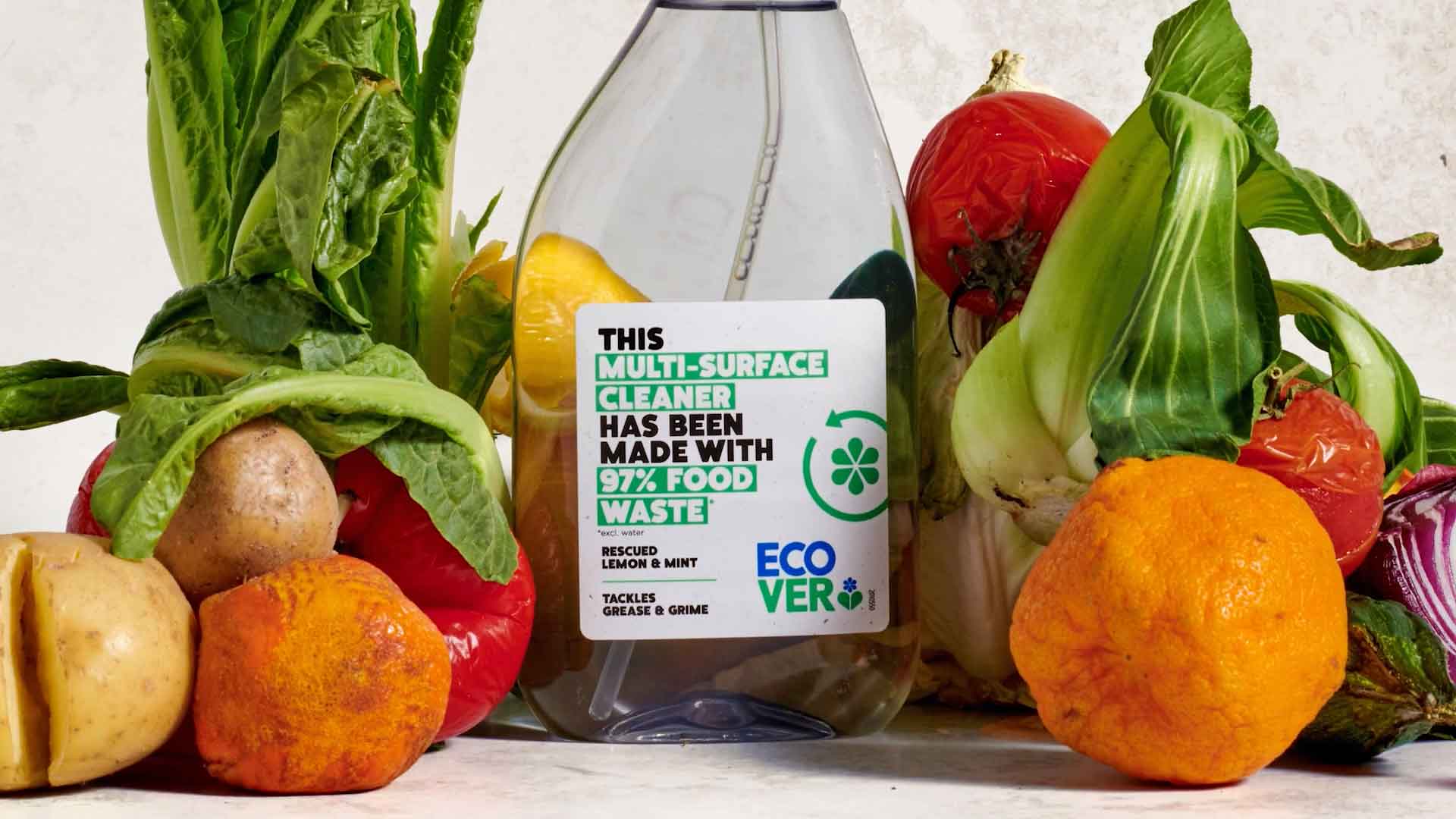Ecover presented the new cleaning products with raw materials made up to 97% from food waste (not counting water) as part of the European WASTE2FUNC project:
- Potato peels and similar food processing waste were fermented into fatty acids and treated with alcohol from breweries making alcohol-free beer, then converted into surfactants.
- Supermarket food waste was collected from local supermarkets and fermented. It contains a mix of food products that are no longer suitable for sale, e.g. due to expiry of the expiry date, because of packaging damage or other reasons. This mix formed the starting point for the production of both the lactic acid decalcifier and the biosurfactant production process.
- Rescued lemon and mint were used to create fresh, clean-smelling fragrances. The lemon ingredients in the fragrance come from natural oils that would otherwise have been a waste product. The mint ingredient is the result of the redistillation of remains of the Mentha Arvensis, or Peppermint plant.
- Sugar beet pulp is a by-product of sugar beet processing for sugar production. The pulp can be used as a thickener in several products.
Circularity
WASTE2FUNC is a project funded by the Circular Biobased Europe Joint Undertaking (CBE JU) in which lactic acid and biosurfactants derived from raw materials from sustainable agriculture and industrial (food) waste serve as new functional ingredients for consumer products. In Europe, around 90 million tonnes of food are wasted annually at all stages of the food production chain; primary production, processing, wholesale and retail, foodservice – but also in the home. Wasting this valuable biomass contradicts Europe’s ambition to make the economy fully circular by 2050.
Partners in the WASTE2FUNC project are Bio Base Europe Pilot Plant, Ghent University, Boerenbond, Organic Waste Systems, Ecover, Arche Consulting, Group op de Beeck, TripleW, Amphistar, Evonik, Croda, NNFCC consultants and the City University of Hong Kong. The project will run until the end of 2024.
Visit the project website for more information.
Image: Ecover



